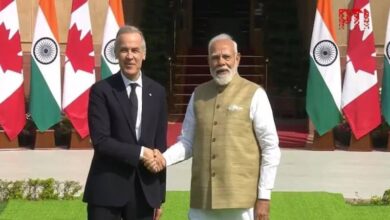As the Pakistani government prepares its budget for the fiscal year 2025-26, online negotiations between Pakistan and the International Monetary Fund (IMF) have intensified.
The delegation from the IMF is expected to visit Pakistan from May 14 to May 22 to finalize key discussions regarding the fiscal framework, including tax targets.
Sources close to the Finance Ministry have revealed that the Federal Board of Revenue (FBR) has proposed a revenue target of Rs 14,200 billion for the next fiscal year, an ambitious goal that will require extensive cooperation with the IMF.
The discussions between the two sides are expected to focus on the finalization of the budget targets, which will include setting taxes and other key fiscal measures.
Tax-to-GDP ratio target set at 11pc
One of the main areas of discussion will be the tax-to-GDP ratio. According to sources, the FBR has suggested increasing the target to 11 percent of the GDP, up from the current fiscal year’s estimated ratio of 10.6 percent.
This proposed target is a part of Pakistan’s broader efforts to boost its tax revenue, which remains crucial for meeting fiscal deficit reduction targets under its ongoing IMF program.
Officials have shared detailed tax data with the IMF, aiming to calibrate the FBR’s revenue expectations for the coming year. The increased tax-to-GDP ratio is seen as an essential step toward Pakistan’s broader fiscal consolidation goals.
Revenue shortfall concerns in current FY
As the country nears the end of the current fiscal year, FBR officials have set a target of over Rs 950 billion in tax collections for the month of May alone. The total collection for the year is expected to reach Rs 11,800 billion, falling short of the original target of Rs 12,970 billion.
Despite this shortfall, the FBR remains hopeful of achieving a revised target of Rs 12,334 billion, which will depend heavily on successful recoveries from pending tax cases.
According to sources, it is estimated that up to Rs 500 billion could be recovered from these ongoing cases. However, failure to make significant progress in resolving tax disputes could lead to a Rs 500 billion shortfall in the final revenue target. This would push the overall revenue shortfall for the fiscal year to a staggering Rs 1,170 billion, compared to the original target.
The upcoming talks with the IMF will be crucial for Pakistan’s fiscal outlook. The IMF has made it clear that the country’s ability to meet its budgetary targets is closely tied to its progress in implementing tax reforms and improving revenue collection. The government’s ability to deliver on these promises will play a pivotal role in securing the next tranche of financial assistance from the IMF.











